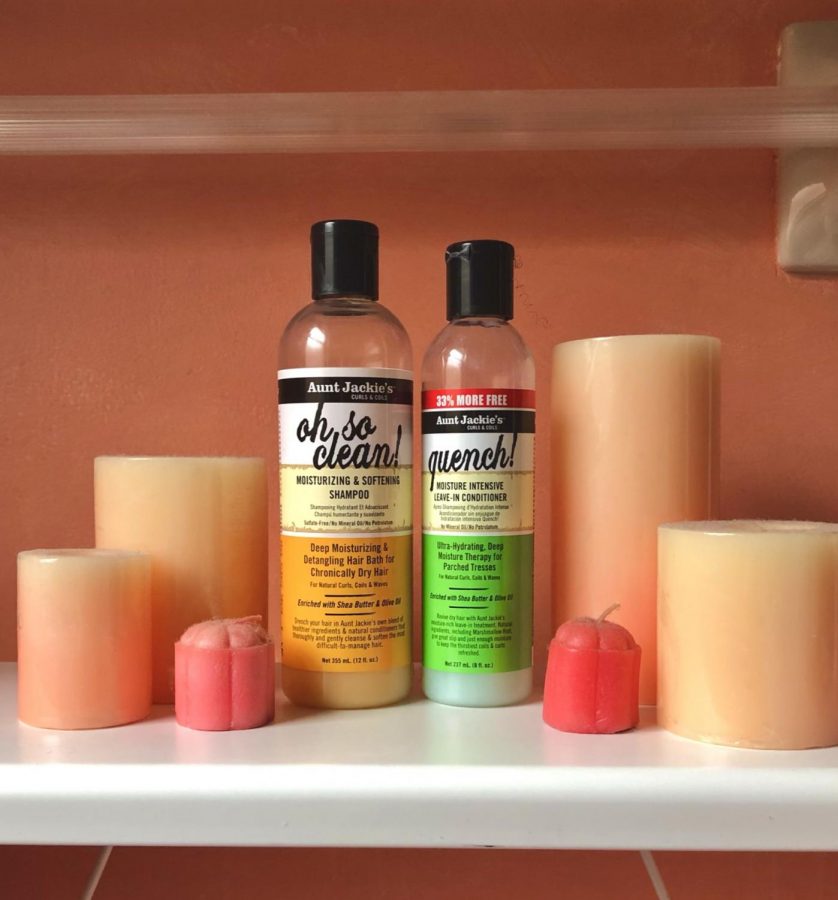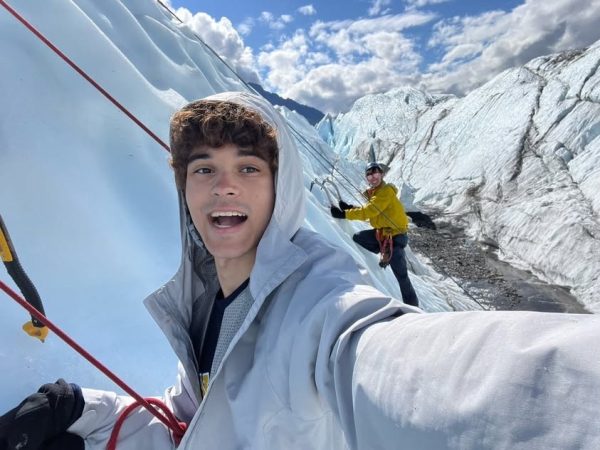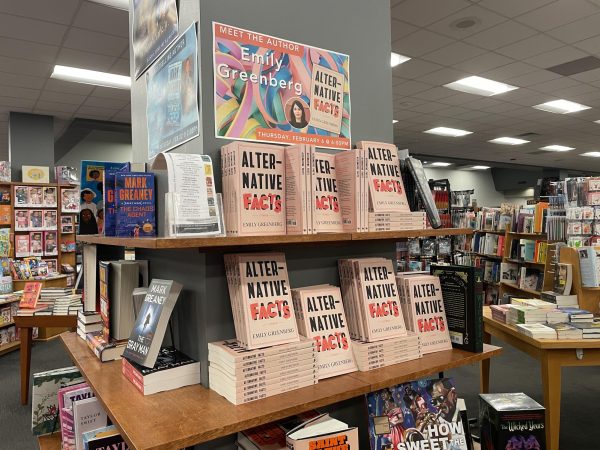Don’t touch my hair
Shampoos and Conditioners, such as Aunt Jackie’s, cater to black hair. These products and many others are used to create the styles that many black people are bullied for.
Coils and curls bounce upon the heads of black people across the nation. But why are these same people being ridiculed for their crowns?
Many black children notice odd gestures towards their hair as early as eight or nine years old.
“In fourth or fifth grade I had a relaxer. My hair was straightened but it was not super straight or long,” Aniya Deann (10) said. “People would make comments about how puffy it would be … or how weird it looked.”
Though seemingly innocent, these comments have a big impact on kids. The result often leads to self-doubt or one changing his or her hair to fit into their environment.
“At one point, I started to feel insecure about my hair because the media would always show people with straight, flat hair,” Melodee McCoy (10) said. “That’s around the time I started to feel off about my hair; it wasn’t something I wanted.”
As the years progress, many notice that the microaggressions against their hair have died down. Nevertheless, many people are still curious about black hair.
“I remember last week at Trader Joe’s, I wore my hair in a high-puff and a lot of people would stare at me,” Gabi Clark (9) said. “I didn’t care, but I thought it was rude.”
Many students note their frustration when it comes to other people touching or asking questions about their hair. Some people react in calmer ways, while others show their anger.
“With kids, it’s not as frustrating because they still haven’t learned about these things,” Cayenne Stevens (10) said. “But when it’s an adult, it bothers me more. Like with teachers, they would tell me to do something different with my hair so I wouldn’t block people in the classroom. That irks me more.”
With these comments in mind, an argument has risen about whether there should be better education for black hair or people with different hair textures in general.
“I don’t think that black people are obligated to teach everybody about their hair, but I do think it’s important for cosmetology schools to teach it,” said Breeze Smith (12). “These beauty schools are not teaching black students about their hair, and I believe that’s very dangerous.”
At the end of the day, black people face microaggressions against their hair constantly. However, that doesn’t take away from the beauty of their locks.
“Don’t feel terrible about your hair,” McCoy said. “At the end of the day, these same people are curling their hair to look like yours. You should be able to embrace it without feeling bad about it.”
Your donation will support the student journalists of White Station High School. Your contribution will allow us to purchase equipment and cover our annual website hosting costs.






































